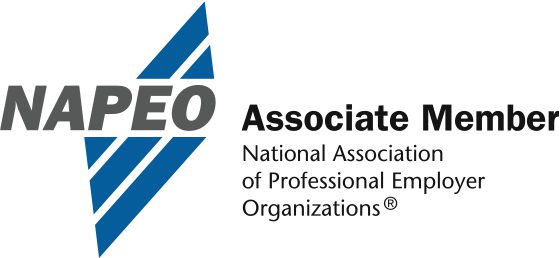In the ever-evolving business landscape, Human Resource Information Systems (HRIS) have become indispensable tools. They not only streamline HR operations but also empower organizations to manage their workforce more effectively.
But how can HR professionals and business owners best navigate the process of choosing the right HRIS for their business? This blog post delves into the essential HRIS requirements for businesses, addresses the challenges HR managers face in selecting the right system, and highlights key vendor evaluation considerations.
Understanding HRIS
What is HRIS? HRIS stands for Human Resource Information System, a software solution that integrates and automates various HR processes. Implementing an HRIS can lead to significant improvements in HR operations, from payroll processing to employee benefits and data management.
Benefits of HRIS Implementation
The advantages of incorporating an HRIS are manifold. It enhances data accuracy, improves compliance, and offers insightful analytics for strategic decision-making. Moreover, it elevates the overall efficiency of HR tasks while empowering employees.
Challenges in HRIS Selection for HR Managers
Selecting the right HRIS isn’t without its challenges for HR managers. It involves navigating a myriad of options, each with its unique features and functionalities, to find a system that aligns with the organization’s specific needs.
The selection process is further complicated by the rapidly changing technological landscape. As new HRIS technologies emerge, HR managers must stay informed about the latest trends and advancements. This requires a delicate balance between choosing a system that is cutting-edge and ensuring it is proven and reliable. Moreover, the HRIS must be user-friendly and align with the technological proficiency of both the HR team and the business’s employees, ensuring a smooth transition and adoption.
Additionally, HR managers must consider the long-term implications of their HRIS choice. The system should not only meet current requirements but also be adaptable to future business changes and growth. Switching HRIS platforms can be disruptive and costly, so HR managers must accurately anticipate future needs and choose a platform with the scalability to support an expanding workforce.
Key HRIS Requirements
Compliance and Security
A top-tier HRIS must ensure the highest standards of data security and compliance. Encryption protocols and compliance with GDPR and other regulatory frameworks are non-negotiable features.
But beyond encryption and regulatory compliance, a superior HRIS must also offer robust access controls and audit trails to safeguard sensitive data. Continuous monitoring for potential breaches and regular updates to security protocols are both essential to maintain data integrity and confidentiality.
Integration and Scalability
The chosen HRIS should seamlessly integrate with existing systems and possess the flexibility to scale with your business. This adaptability ensures the system remains relevant and effective as your organization grows. A larger business has different needs, and the right HRIS will be capable of supporting increasing data volumes and evolving HR functionalities as the business expands.
Employee Self-Service
A leading HRIS is intuitive, mobile-responsive, and provides a comprehensive view of employee data, benefits, and HR policies. An employee portal that allows employees to access personal information and handle tasks like leave management and time tracking is crucial. This not only empowers employees but also alleviates the administrative burden on HR staff, facilitating efficient communication channels between both parties.
Recruitment and Onboarding
Integration with an Applicant Tracking System (ATS) and automation of the onboarding process are vital for efficient talent acquisition and integration. From job posting to candidate assessment and the final hiring decision, effective recruitment modules in HRIS should streamline the hiring process overall. The onboarding component should offer a seamless transition for new hires, with digital document management and initial training modules.
Performance Management
In addition to goal setting and tracking, an ideal HRIS should offer 360-degree feedback mechanisms and continuous performance assessment tools. This facilitates a culture of ongoing development and recognition, fostering employee engagement and motivation while aligning employee performance with organizational objectives. Advanced HRIS systems can also incorporate AI-driven analytics to provide predictive insights on performance trends and talent management.
Learning and Development
A robust HRIS should support personalized learning paths, compliance training, and career development programs. Integration with external learning platforms and tracking of employee certifications are also critical to ensure a well-rounded development strategy that aligns with both individual career goals and organizational objectives.
Analytics and Reporting
Advanced HRIS platforms should go beyond basic reporting, offering predictive analytics and scenario modeling. These insights enable HR leaders to proactively address workforce challenges and trends. Accessibility to real-time data, combined with user-friendly interfaces for non-technical users, empowers various stakeholders to leverage HR data in strategic planning and decision-making processes.
Key Considerations for HRIS Selection: Frequently Asked Questions
What are the key features to look for in an HRIS?
When selecting an HRIS, look for comprehensive features like these:
- Robust compliance and security measures
- Integration capabilities with existing systems
- Scalable infrastructure
- Employee self-service portals
- Efficient recruitment and onboarding tools
- Detailed performance management systems
- Dynamic learning and development modules
- Advanced analytics and reporting functionalities
What are the key challenges faced by HR managers in selecting the right HRIS?
HR managers often grapple with finding a system that balances cutting-edge technology with user-friendliness, aligns with the organization’s specific needs, and fits within budget constraints. The need to forecast future business changes and ensure scalability and flexibility also adds to the complexity of the selection process.
How can organizations ensure compliance and security in HRIS implementation?
To ensure compliance and security, organizations should prioritize HRIS solutions that offer strong data encryption, access controls, and compliance with regulatory standards like GDPR. Regular security audits, continuous monitoring for data breaches, and keeping the system updated with the latest security protocols are also vital.
Why is employee self-service important in a modern HRIS?
Employee self-service in HRIS empowers employees to manage their personal information, benefits, leave requests, and time tracking independently. This feature enhances employee engagement, provides immediate access to important information, and significantly reduces the administrative workload on HR staff, leading to increased efficiency and employee satisfaction.
Selecting the Right HRIS
Selecting the right HRIS is a strategic decision that requires a comprehensive understanding of your organization’s unique needs and goals. Begin by assessing the specific requirements of your HR department and how they align with your overall business objectives. This assessment should encompass everything from day-to-day HR tasks to long-term strategic planning.
Conducting a thorough vendor evaluation and comparison is the next step. This involves not only comparing the features and functionalities of different HRIS solutions but also examining their track record for reliability and customer satisfaction.
Consideration of implementation and support services is also vital. An HRIS is not just a product but a long-term partnership. Ensure that your chosen vendor provides robust support, both during and after implementation, to facilitate a smooth transition and ongoing operation.
Lastly, obtaining user feedback and references is invaluable. Speak with current users of the HRIS solutions you are considering to gain insights into their real-world experiences. This feedback can provide a more nuanced understanding of how the system might perform in your specific environment.
Conclusion
A well-chosen HRIS is fundamental in today’s dynamic business environment. Its selection should be a strategic decision, focusing on compliance, integration, scalability, and employee-centric features. The right HRIS not only streamlines HR operations but also contributes significantly to the overall success of the organization. For more information on HRIS, speak with an expert today.







